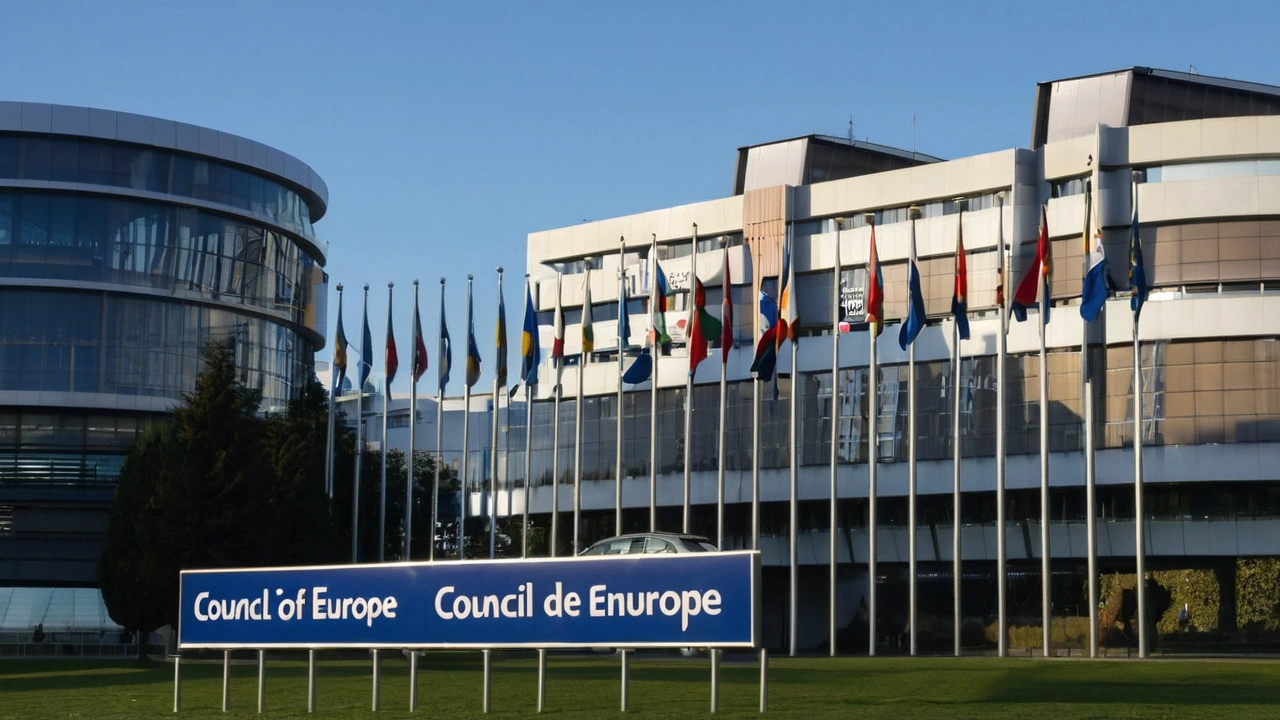EU Drops Sanctions on Prigozhin's Libya Subsidiaries Amid Ongoing Geopolitical Tensions
 Jul, 27 2024
Jul, 27 2024
EU Drops Sanctions on Prigozhin's Libya Subsidiaries Amid Ongoing Geopolitical Tensions
In a significant and somewhat controversial decision, the European Union has lifted sanctions on several subsidiaries of Russian businessman Yevgeny Prigozhin, commonly known as 'Putin's Chef' due to his close ties with Russian President Vladimir Putin. The sanctions, which were originally imposed due to these companies' alleged involvement in the Libyan conflict, have now been officially revoked, signaling a noteworthy shift in EU's stance on the matter.
Background and Implications
Prigozhin, a powerful figure within the Russian elite, has been under EU sanctions since 2020. He gained international notoriety for his alleged role in meddling with the 2016 US presidential election and has remained a controversial figure. The removal of his subsidiaries from the sanctions list is thus seen as a significant development. The decision, made on July 22, 2024, includes the delisting of Libera Trading and Mariton Group, both based in Libya, as well as the Emirati-based Merope Trading. These companies were originally sanctioned due to their purported support for the Libyan National Army (LNA) led by General Khalifa Haftar.
Haftar's forces have been a central player in the Libyan civil conflict, and any allegations of support by Prigozhin's subsidiaries place them in a contentious light. The LNA has been involved in clashes against the internationally recognized Government of National Accord (GNA), making the role of external actors, including Prigozhin's affiliates, a critical element of international interest and scrutiny.
Potential Motivations Behind the Decision
Several factors might have contributed to the EU's decision to remove these specific entities from the sanctions list. Firstly, there is the question of efficacy and strategy. Targeted sanctions are intended to exert political and economic pressure, but they also need to be adaptive and reflective of the shifting geopolitical landscape. Given Prigozhin's known expanding influence in Africa, particularly in Libya, the delisting may be a recalibration based on new intelligence or changing policy priorities.
The timing also suggests a strategic maneuver. With global conflicts evolving and alliances shifting, the EU may aim to reengage with certain players differently to exert more nuanced influence or open new diplomatic channels. Additionally, delisting Libyan-based companies might be partially aimed at stabilizing a critical region that has attracted numerous international interventions and interests over the years.
Economic and Political Consequences
Delisting these subsidiaries presents both economic opportunities and challenges. For Prigozhin, this could mean a smoother pathway for his business interests in Libya, potentially resulting in increased revenue streams and a bolstering of his financial footprint. However, for the international community, the move might prompt varied reactions. Some critics may argue that easing sanctions could embolden Prigozhin and similar figures, potentially exacerbating conflicts or undermining international efforts to curb aggressive private military enterprises like Prigozhin's Wagner Group.
The Wagner Group itself has been a subject of numerous controversies and accusations, being linked to various conflicts from Syria to Ukraine and, of course, Libya. This Russian private military company has been accused of numerous human rights violations and mercenary activities that complicate international relations. Relaxation of sanctions on entities affiliated with such actors might, therefore, send mixed signals about the enforcement of international norms and human rights considerations.
Broader Geopolitical Landscape
This development is not occurring in isolation. It's part of a broader, more complex geopolitical narrative where Africa, and specifically nations like Libya, are becoming arenas for power play among international actors. Russia's increased involvement in Africa through various means, including military, economic, and political channels, is indicative of its broader strategy to expand its influence.
Libya, given its strategic importance, resources, and ongoing instability, remains a focal point for various global powers, including the European Union, the United States, and regional actors like Turkey and Egypt. The EU's decision may thus be interpreted through the lens of these larger dynamics where local conflicts intersect with global strategies and interests.
The Humanitarian Aspect
At the heart of these political and economic maneuvers lies the humanitarian situation in Libya, a country that has suffered immensely from prolonged conflict. The power struggles, foreign interventions, and internal divisions have wreaked havoc on the civilian population, leading to significant displacement, loss of lives, and economic turmoil. Any shifts in sanctions, while having strategic implications, also warrant consideration of their humanitarian impact.
For the EU, which has often positioned itself as an advocate for human rights and international norms, this decision could attract scrutiny and demands for greater transparency regarding its motivations and anticipated outcomes. Ensuring that the ultimate aim remains the stabilization and humane treatment of affected populations should be a paramount concern.
Looking Forward
As this decision reverberates through political and economic corridors, it remains to be seen how it will reshape the Libyan conflict and Prigozhin's role within it. Stakeholders from various sectors will be closely monitoring the developments to assess the impact and future trajectories of this geopolitical maneuver. For now, the delisting signifies a notable shift, opening new chapters in the ongoing saga of international diplomacy, conflict resolution, and economic interests in Libya and beyond.

mahesh krishnan
July 28, 2024 AT 22:33Mahesh Goud
July 30, 2024 AT 22:03Ravi Roopchandsingh
July 31, 2024 AT 02:27dhawal agarwal
August 2, 2024 AT 02:13Shalini Dabhade
August 2, 2024 AT 04:44Jothi Rajasekar
August 2, 2024 AT 06:20Irigi Arun kumar
August 2, 2024 AT 10:53Jeyaprakash Gopalswamy
August 2, 2024 AT 16:23ajinkya Ingulkar
August 3, 2024 AT 23:41nidhi heda
August 4, 2024 AT 05:34DINESH BAJAJ
August 6, 2024 AT 00:26Rohit Raina
August 7, 2024 AT 15:14Prasad Dhumane
August 8, 2024 AT 01:43rajesh gorai
August 9, 2024 AT 00:56Rampravesh Singh
August 10, 2024 AT 15:44Akul Saini
August 11, 2024 AT 20:13Arvind Singh Chauhan
August 12, 2024 AT 15:46AAMITESH BANERJEE
August 13, 2024 AT 08:29Akshat Umrao
August 14, 2024 AT 08:17Sonu Kumar
August 16, 2024 AT 06:58